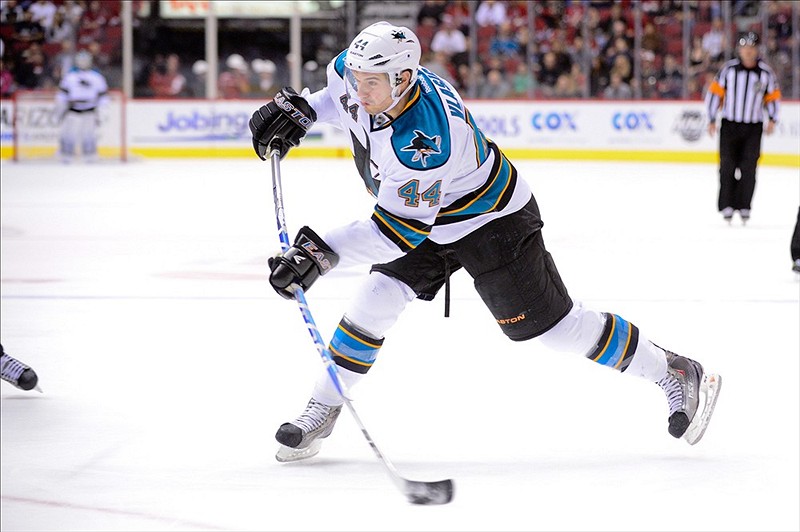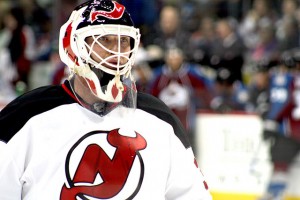
In Game 2 of the Western Conference semifinals against the San Jose Sharks and the Los Angeles Kings, the Sharks held onto a 3-2 lead late in the third while trying to kill a King power play. That’s when Sharks defenseman Marc-Edouard Vlasic shot a puck that may or may not have deflected off of the Kings’ Jeff Carter. Said puck lifted over the glass and into the stands.
Two minute delay of game call, Kings go on a two man advantage. Los Angeles scores two goals late in the third to take a 2-0 series lead and shock the Sharks. There have been more questionable delay of game calls, I’ll admit, but Rule 63.2 needs a change. Not a repeal, but a change.
Why We Need The Rule
First off, the rule still needs to be intact. I know that many hockey fans hate the rule, but it is needed in today’s game. The rule was started in large part to keep goalies, like Martin Brodeur, with outstanding puck handling skills from shooting the puck over the glass to relieve pressure.

However, former New York Rangers general manager Neil Smith felt that the rule was unfair to goaltenders, and he has a point. After all, goaltenders normally aren’t known for their puck handling and shooting abilities, hence why all other players were involved in Rule 63.2.
I understand why the rule needs to be in place. Shooting the puck into the stands to relieve pressure is done right cheating and it was high time that they changed the rule. The game needs to go at a fluid pace and if you keep shooting the puck out of play, it slows down the game and hinders the defending team.
Why The Rule Needs a Change
The rule needs a change, that’s for sure, but it is way too sensitive. No matter how accidental a shot puck over the glass may be, it is still a two minute minor no matter how you cut it.
I believe that the referees need to use discretion when making a delay of game call. Players have been called for the delay of game call while trying to keep the puck in play, trying to use your glove to bat the puck down, but it goes over the stands. That should be a discretion call and not an automatic two minute minor, the player was trying to keep the puck in play.
Rule 63.2 states:
A minor penalty for delay of game shall be imposed on any player or goalkeeper who deliberately shoots or bats (using his hand or his stick) the puck outside the playing area during the play or after a stoppage of play.
Keyword on deliberately, but what is considered deliberate. The above example I gave isn’t a deliberate attempt. What if someone shoots the puck on it’s on really bad ice? What if the puck is on an edge, much like what Washington Capitals defenseman Steve Olesky claimed in Game 2 of the Rangers-Capitals series. If a player deliberately aims and shoots over the glass then, yes, that’s no no-brainer, but how many players actually try to shoot it over the puck. Usually it is just an attempt to clear the puck gone wrong. A line has to be drawn at some point between accidental and a deliberate attempt.
I’m going to use that same game as an example again. In the third period of that game, a puck had deflected off of his stick and after a lengthy discussion, the refs decided that it wasn’t a delay of game. The right call was made because the refs gathered together and talked about it.
Another thing that could be used is video replay. You use video replay to check on goals or goalie interference (if a goal is scored due to it), so, why not on a delay of game? I also understand why you wouldn’t want to use it either. A delay of game penalty is called more often than any goal that needs to be reviewed. Reviewing every delay of game call would render the rule obsolete as the game would be slowed down, the rule was made, in large part, to speed up the game.
Every other rule in the NHL rule book allows the referees to use some discretion, except the delay of game rule and that is a rule that desperately needs to change. Too many games have had a turning point because of a questionable call, i.e. Vlasic and the Sharks. It won’t be long until a team loses a playoff series due to a delay of game call that didn’t need to be called in the first place.